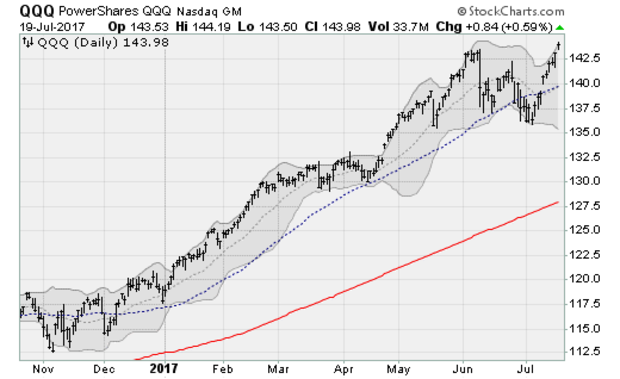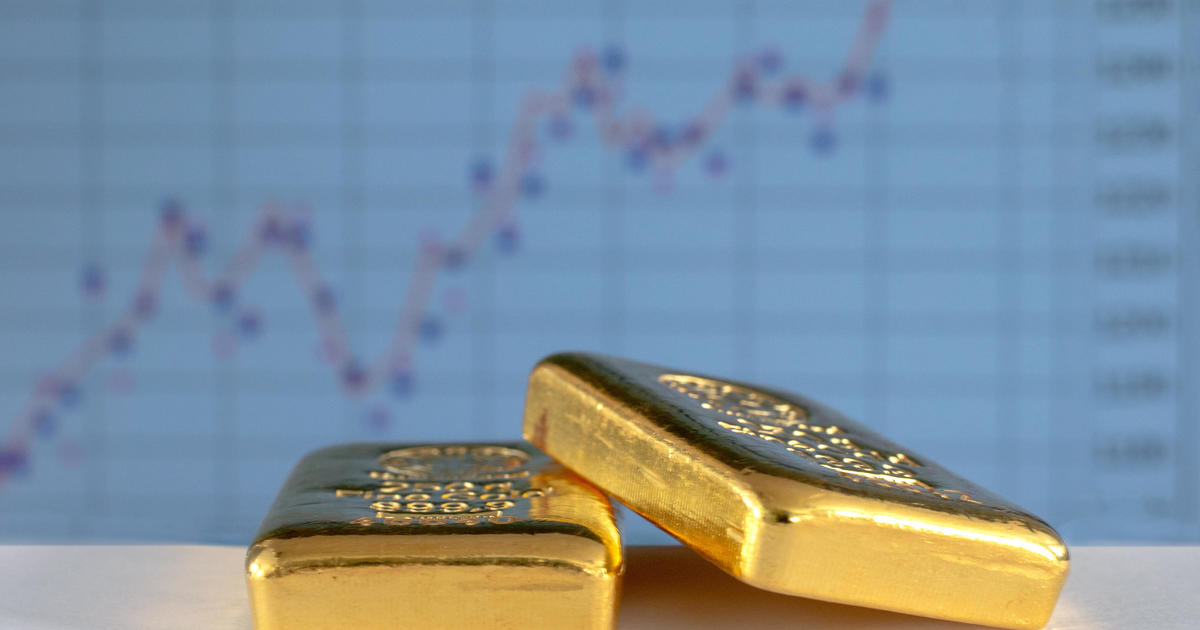Enjoy Wall Street's quiet time, while it lasts
U.S. equities crawled higher again on Wednesday, with the tech-heavy Nasdaq hitting yet another record high. But don't be fooled: The summer doldrums are in full force, marked by a lack of trading volume and meaningful catalysts. Yet investors don't seem to care because higher stock prices are coming as naturally as breathing right now.
Stock market calm has reached new extremes as ongoing central bank asset purchases -- mainly out of Japan and Europe -- quell volatility. Investors have rarely had it better. A breakdown in the GOP's health care reform effort? Doesn't matter. Uneven big bank earnings? Boring and irrelevant. Evidence of a retrenchment by U.S. consumers? Sorry, I was busy browsing Amazon (AMZN).
One gets the impression that anything -- even an eruption of the Yellowstone super-volcano -- would result in a rally to new record highs (chart below).
In fact, by multiple measures, these are the easiest market conditions in decades. Stocks haven't suffered a 5 percent pullback in more than a year. And at no point during trading on Wednesday were more stocks being sold than bought, something that's been a rarity even for this bull market, according to Jason Goepfert at SentimenTrader.
In a note earlier this week, Goepfert thundered that there has been "no shortage of oddities in the stock market this year." He included the abnormally large number of stocks making new 52-week lows even as the Nasdaq soars relentlessly. Or that on Tuesday, as the Nasdaq climbed, fewer than 45 percent of the stocks in the index rose.
This is all behavior that has presaged periods of market weakness in the past. But perhaps it's different this time.
The big news of the day was the S&P 500's Technology Sector has finally surpassed its dot-com bubble peak set on March 27, 2000. The bulls are cheering the result, noting that tech-sector valuations, while elevated, are far from the extremes seen 17 years ago. It's worth remembering also that on an inflation-adjusted basis, tech stocks are still down about a third from their prior peak. C'est la vie.
For now, nothing seems to matter besides the ongoing flow of central bank asset purchases, led currently by the Bank of Japan and the European Central Bank (chart above). Investors are ignoring the acrimony and gridlock in Washington, even though hopes of action by President Donald Trump and Congressional Republicans on things like health insurance and tax cuts fueled the post-election ebullience in the first place.
But that's poised to change in September. The Federal Reserve is expected to unleash its "quantitative tightening" program to start rolling back its $4.4 trillion balance sheet. This also coincides with the appearance of policy risk as Washington contends once more with the debt ceiling.
Until then, it's truly hard to find any potential headwinds that could rattle stocks here as second-quarter earnings are coming in largely as expected.





